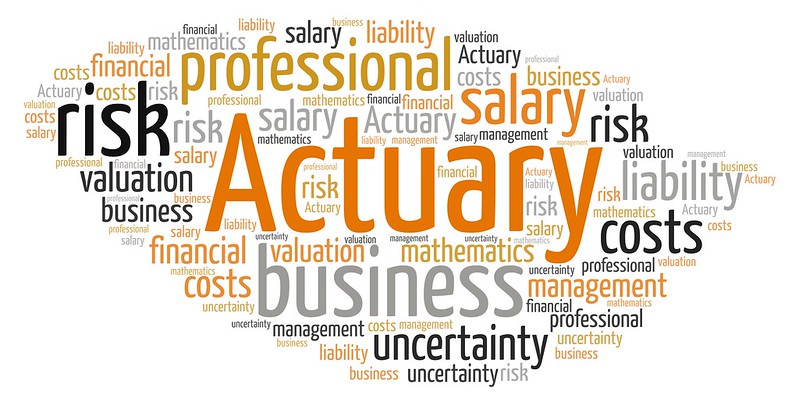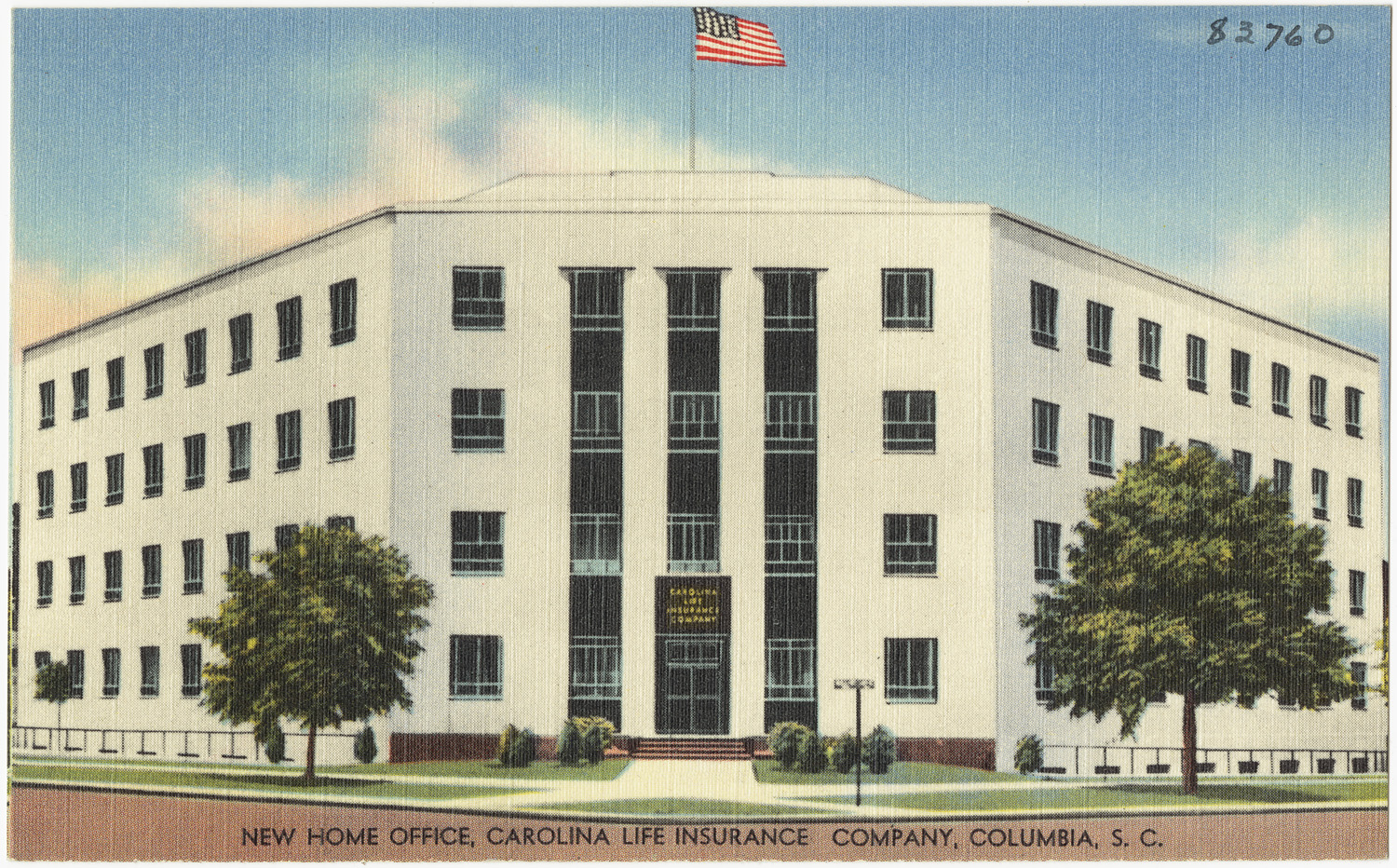When Should the New Yew York Department of Financial Services have Rehabilitated American Transit Insurance?
Hey! Maybe we can grow our way out of the problem! || All images from Aleph Blog
At one point in time, I was a Fellow in the Society of Actuaries, a Life Actuary specializing in investment issues. Eventually, I was hired by a hedge fund to analyze all types of insurance stocks. I knew some things about reserving outside of life insurance, but I had to learn more to become competent at understanding what made for good insurance stocks.
I learned that good P&C management teams state their financials conservatively, and aim for adequate margins over growth. They set reserves for the current year’s business high (conservative), so that in most cases reserves for business from prior years produce slight gains over time as the claims come in at less than the reserves.
I wrote an article about this back in 2014, Ranking P&C Reserving Conservatism. When I went back and looked at it after 3 years or so, those that had to strengthen reserves for prior year business did worse than those that could release their reserves for prior year business. Never published a second article on this, though.
Today I’m going to tell you about the worst P&C reserves I have ever seen, and tell you the story of how this came about. American Transit Insurance over the last few decades was the largest insurer of hired vehicles (taxis, black sedans, Uber, livery, and rideshare vehicles) in New York City. They gained a dominant market share by underpricing their insurance, and under-reserving. While market returns were high, that covered all or part of the underwriting losses.
ATI has been shaky for a long while. From this story at Insurance Journal:
Update: NYC’s Largest Cab Insurer Ordered to Explore Sale After Losses“DFS said regulators made significant efforts to address ATIC’s financial problems, including filing multiple petitions to put the company into liquidation, starting back in 1979. The New York State Supreme Court denied that petition, a decision that was upheld by the Appellate Division and the State Court of Appeals in the 1980s, DFS said.”
And this story: “While ATIC is required by the state’s DFS to submit to an examination every five years, there are no publicly available exam reports for the company. A 1986 DFS evaluation obtained by Bloomberg described ATIC as insolvent by $6 million.”
New York City’s Biggest Taxi Insurer Is Insolvent, Risking Transit Meltdown
As a result, they raised $6.6 million of capital and continued in business. When the next five-year exam rolled around, NYDFS tried to take ATI into rehabilitation, but lost in the courts. From the first article:
“In 1991, the Insurance Department again tried to put the company into rehabilitation, prompting ATIC to seek an injunction to halt the proceeding. Ultimately, a special referee assigned to arbitrate the case suggested ATIC seek a capital infusion. A year later, the company and the state reached a settlement that allowed ATIC to remain in business, but stipulated the company keep surplus contributions and submit to enhanced state monitoring, DFS said.”
Update: NYC’s Largest Cab Insurer Ordered to Explore Sale After Losses
Now for my graphs and efforts: I downloaded the Statutory Statements for 2023, 2018, and 2013. That enabled me to look at the Five-Year Historical Data Pages, which gave me data series on important aspects of ATI’s business from 2009-2023. If you look at the graph at the top of this article, you will see how surplus declined 2009-2013. Incurred losses and loss adjustment expenses [LAE] were higher than earned premiums, and that didn’t take into account underwriting, marketing, management, and other expenses.
Their consulting actuary said in her 2013 review: “In my opinion, based on the information available for my review, the stated reserve amount does not make a reasonable provision for the liabilities associated with the specified reserves. It is my opinion that the $47,100,000 net reserves for losses and loss adjustment expenses are deficient by approximately $31,000,000. It is my opinion that the $47,100,000 direct reserves for losses and loss adjustment expenses are deficient by approximately $31,000,000. Additional information or further changes in such items as the claim handling procedures could change my estimate of the deficiency.” The surplus of ATI was a little less than $31 million. ATI was insolvent. This information was available to the NYDFS. This was the last moment to rehabilitate ATI without taking significant losses.

ATI chose to ignore the consulting actuary, and did two things. First they rolled the dice and likely said, “Let’s grow our way out of the problem!” And so they doubled their underwriting over the next five years. (See graph above.) The second thing they did was lower reserving on new business. (See graph below.) From 2009-2013, the implied expected loss plus LAE rate for new business was 81.2%. Now they had never once achieved that rate in that era. They were under-reserving new business. But from 2014-2018, they dropped that rate to 60.7%. That allowed them to report statutory profits, and growing surplus (look at the top graph). This came at a price of under-reserving even more. Looking at the graph immediately above, losses from prior year business doubled 2014-2018.
In 2018, the company again ignored their consulting actuary. In their 2018 MD&A, they said: “The Company has rejected the reports for December 31, 2018 and 2017 from its independent actuary. The actuary has estimated that the Company’s reserves for unpaid losses and loss adjustment expenses as of December 31. 2018 and 2017 were understated by approximately $45,000,000 and $36,000,000, respectively, on its filed statutory financial statements after taking into account anticipated salvage and subrogation and anticipated investment income. No such adjustments have been reflected in the accompanying financial statements since the Company has rejected the reports.”

The consulting actuary definitely underestimated the amount of under-reserving, but at least she was consistent in telling the company that they were under-reserving.
2019-2023 was the last gamble for ATI, again akin to a Ponzi, where you rob the future to pay the present. They lowered the implied expected loss plus LAE rate for new business to 27.6%. No P&C insurance company has a loss rate that low. As such the under-reserving continued to build.

We compare company surplus to the authorized control level of risk-based capital. When the ratio gets below 100%, the insurance department can seize the company for rehabilitation. So, in early 2024, NYDFS could seize it. They have not done so, and ATI, finally listening to the successor consulting actuary (to the one in 2013, 2018 etc.) announced a $700 million loss for the second quarter of 2024. The jig is up.
Note: my “true” surplus figure above assumed a 95.8% loss and LAE ratio, which was the average 2009-2023, and said the deficit is the difference between that and the implied new business loss ratio times earned premiums. Now at the end, all underwriting was out of control, and so that ratio had to be a lot higher than 95.8%. But the graph above shows directionally how bad things were going, which could not be seen by the regulatory surplus vs ACL RBC ratio calculation.
NYDFS has told ATI to find a buyer. I can tell you they will not be able to sell the joint until after the guaranty association covers the claims that ATI cannot cover. I don’t think there is any franchise value in ATI, as their only selling point was an overly cheap premium that could not cover losses, much less generate a profit. They will go into liquidation, and other insurance companies writing auto business in New York will have to cover the tab. (You have my sympathies. I lost one year of profit when I was surcharged for the losses of Confederation Life to cover their group annuity losses. Adding insult to injury, the failure of Confederation, indirectly kicked me out of the GIC business, as credit rating standards rose, and my company could not meet it. That said, it freed me to do three projects that added 5% to the surplus of the company.)
On the bright side, the CEO, Director and 3 former directors own 56% of the equity, and it will go out at zero. They may face various lawsuits from creditors not covered by the guaranty association. Perhaps the no-name auditor may also face some lawsuits. They earned a lot of fees, but did they hire a consulting actuary to validate the reserves? Did they talk to ATI’s consulting actuaries?
This brings up one final point: ignoring actuaries. In the life insurance business, management teams can’t push around their appointed actuaries (at least not much). Why do P&C management teams get to ignore their actuaries? Actuaries are bright, and they have an ethics code that they have to follow. P&C management teams should have to have actuaries that set the reserves, and they can do nothing about it.
Now I’m not going to tell you that I am a genius, all of the figures presented here are “spit-in-the-wind” estimates, and I know a trained FCAS (Fellow in the Casualty Actuarial Society) could do a lot better than me. But these estimates could be done easily at any State Insurance department with ease, as they take just seven variables from the Five-Year Historical Data Pages, and can flag reserving problems easily. NYDFS did not do what it took me three hours to do. This could have been caught in 2013 or earlier. The evidence was there.











